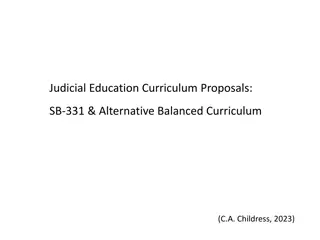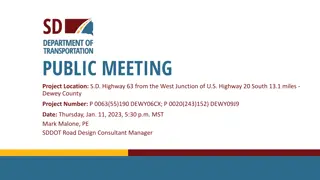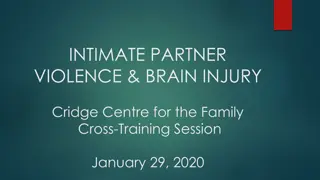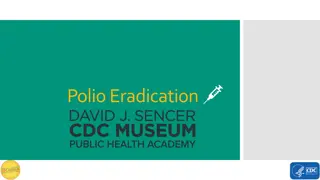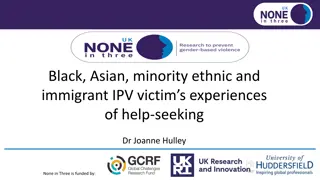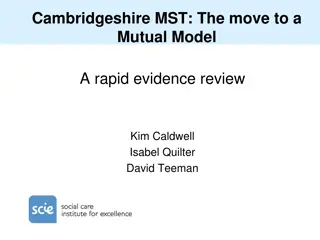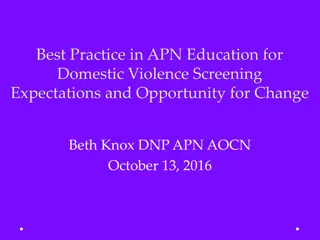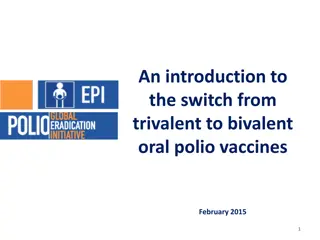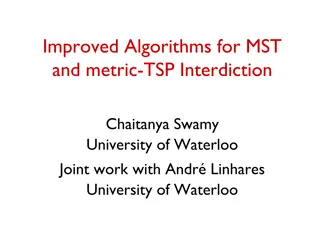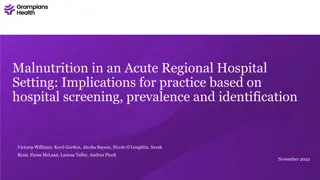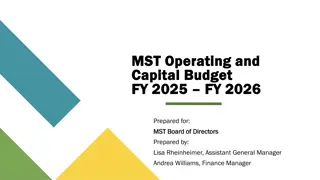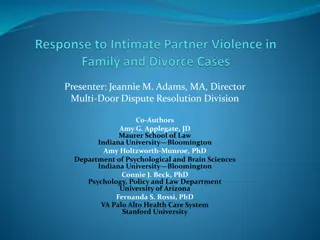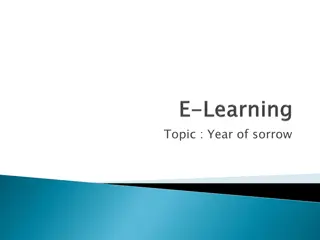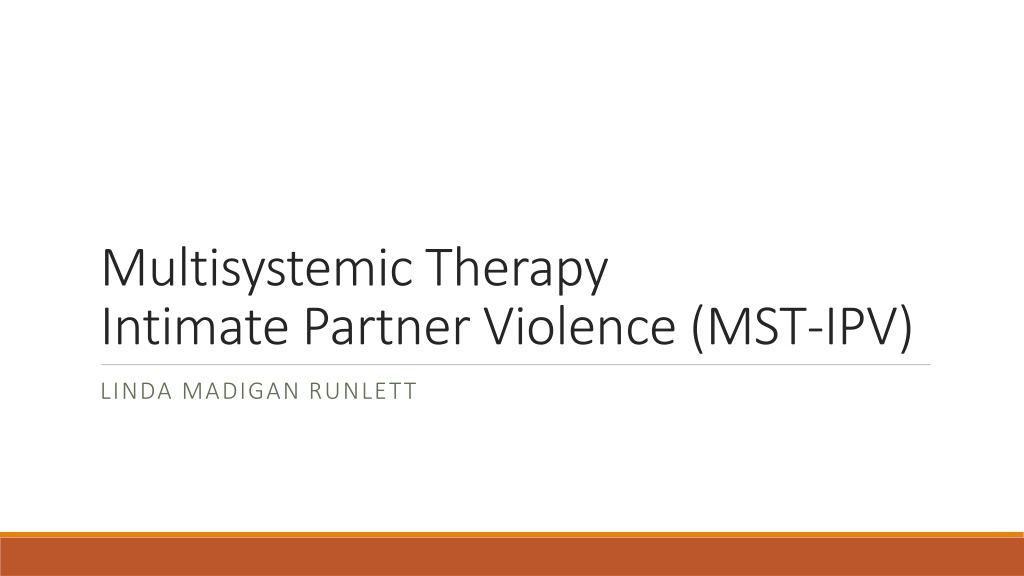
Innovative Multisystemic Therapy for Intimate Partner Violence
Explore the Multisystemic Therapy Intimate Partner Violence (MST-IPV) program, designed to address intimate partner violence within families. Learn about the pilot highlights, scope, areas served, service highlights, and impact on family safety and well-being.
Download Presentation

Please find below an Image/Link to download the presentation.
The content on the website is provided AS IS for your information and personal use only. It may not be sold, licensed, or shared on other websites without obtaining consent from the author. Download presentation by click this link. If you encounter any issues during the download, it is possible that the publisher has removed the file from their server.
E N D
Presentation Transcript
Multisystemic Therapy Intimate Partner Violence (MST-IPV) LINDA MADIGAN RUNLETT
MST-IPV Pilot Highlights 2014 Talks began between DCF and Dr. Schaeffer & Dr. Swenson (model developers of MST- BSF) to develop a new innovative treatment model addressing families impacted by intimate partner violence. Initial white paper developed by Dr. Schaeffer & Dr. Swenson (October, 2014) 2015 Statewide focus groups with local stakeholders: mothers and fathers impacted by IPV, CPS staff, Police and Advocates. Presentation to Annie E. Casey Foundation. Designated Pilot Program to be initiated in New Britain Area Office 2015 2017 MST-IPV model developed Sole Source to Wheeler Clinic August 2017 - First family accepted into MST-IPV August 2017 September 2018 - MST-IPV is successfully maintaining safety between couples. Fourteen families have been serviced to date. All 3 cases closed have been closed successfully, as defined by children still in the home and no new CPS reports
Overview of MST-IPV Scope: MST-IPV provides intensive in-home family and community-based treatment to families who are involved with the DCF due to the physical abuse and/or neglect of a child/children in the family and the presence of intimate partner violence (IPV) within the family Total Funding: $535,000 FY18 ($535,000 DCF funding; $5,000 Federal funding) Total Capacity: Approximately 21 families annually. 12 families at a time. 4 cases per FT Clinician. Caseload size of staff: Team includes 1 FT Supervisor, 3 FT clinicians, 1 FT case manager and .10 APRN. Statewide Utilization Rate: SFY 18 - To date 14 families served - 67% utilization
Overview of MST-IPV Areas /regions served: New Britain Area Office LOS: approximately 6-9 months Referral process: Referred by DCF Intimate Partner Violence Specialist Evaluation process: MST-QA (Fidelity and PIE) & MST-IPV evaluation pilot study (2019) Staff Demographic: 80% - female/20% - male; 40% speak Spanish speaking; 40% are Caucasian; 60% are Black/African American; 40% are Hispanic Origin
MST-IPV Service Highlights A family safety plan is individually created for each family An analysis of abuse/neglect and IPV incidents to inform service planning and treatment interventions Adult and child trauma treatment & other mental health treatment Evidence-based substance abuse treatment where indicated (RBT) Domestic Violence-Focused Couples therapy (DVFCT) Research supported conjoint couples treatment designed to give couples skills needed to either stay together or engage in ongoing co-parenting safely High involvement by family s natural ecology Assistance with housing, employment and budget management 24 hour emergency and crisis intervention services if needed
MST-IPV Data Admissions by Race Admission by Race Families Served to date: 14 Adults 28 Mothers 14 Fathers 14 Children - 33 9% 9% 46% 36% White Hispanic Black Other
MST-IPV Data Discharge by Race Discharged Families Total 3 Mothers 3 Fathers 3 Children 6 Discharges 17% 50% Family Status Two couples opted to stay together without violence One couple had a safe dissolution of their relationship continue to co-parent 33% Hispanic White African American
MST-IPV Strengths Strengths: Strong and cohesive provider team Commitment of Annie E. Casey Foundation in pilot research Upon IRB approval, 100% of parents (both partners) asked to participate in the evaluation have agreed (signed research consent) Initial data are very promising Families willing to enroll in new innovative treatment model Strong family engagement in treatment All 3 families have discharged successfully and without new safety concern
MST-IPV Challenges Complex clinical needs of families resulting in long lengths of treatment Average length of cases closed thus far = 224 days (7.5 months) Two (2) cases have been open for a full year (closing soon) Homebased services are often logistically challenging for therapists partners living in separate households, often in wide geographic region
MST-IPV: Outcome data 2019 MST-IPV began using PIE 10-1-18 MST-QA will provide data on pre- to post-treatment changes self- reported by parents and children MST-IPV Evaluation Pilot Study - Intention to compare MST-IPV research families to comparable families in New Britain Area Office who did not receive MST-IPV Repeat maltreatment (new reports/removals) @ 3, 6, 9, 12 months
MST-IPV Next Steps Meet capacity guideline 21 families a year Ongoing fidelity monitoring, begin evaluation process Assess expansion Begin repeat maltreatment outcome collections (case review)
THANK YOU Linda Madigan Runlett linda.madigan@ct.gov


